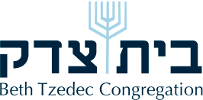This week’s parashah, Pinchas, contains a story that, at first glance, may seem like a legal footnote. But upon closer look, it reveals itself to be one of the most powerful stories of courage, justice, and the evolving nature of Torah. I, of course, am speaking of B’not Tzelophechad, the five daughters of Tzelophechad—Machlah, Noa, Hoglah, Milcah, and Tirzah.
Their story begins simply:
וַתִּקְרַ֜בְנָה בְּנ֣וֹת צְלׇפְחָ֗ד The daughters of Tzelophechad came forward… (Numbers 27:1)
But that phrase “they came forward” contains multitudes.
In a society where women were rarely given a voice in legal matters, these five sisters stood before Moses, Eleazar the Kohen, the chieftains, and the entire assembly—the most powerful leaders of Israel—and made a bold claim:
Our father died in the wilderness… Why should our father’s family be penalized because he did not have a son? Give us an inheritance of land just like our father’s kin. (Numbers 27:3–4)
These women are not just politely asking for land. They are demanding it. And they are demanding to be seen. To be recognized. To have their dignity—and their father’s memory—honoured. They are not rebelling, but they are resisting a system that, as it stood, rendered them invisible.
And the most remarkable part? Moses doesn’t dismiss them. He doesn’t rule on his own. He brings their case before God—and what does God say?
The daughters of Tzelophechad speak rightly. Give them an inheritance of land like their father’s kin; transfer their father’s share to them. (Number 27:7)
This is stunning. For the first—and only—time in the Torah, a law is changed because of the initiative of women. God affirms not just their legal standing, but their moral clarity:
כֵּ֗ן בְּנ֣וֹת צְלׇפְחָד֮ דֹּבְרֹת֒
The daughters of Tzelophechad speak rightly.
The Torah, we learn here, is not static. It grows. It responds. It listens.
Later, in the Book of Joshua, these same daughters come forward again to claim their promised land. And they receive it. These were not women of one moment. They were women of ongoing faith and persistence. They became role models for all who seek justice, not through rage, but through wisdom, courage, and respect.
Much has been written and interpreted about Machlah, Noa, Hoglah, Milcah, and Tirzah, and I encourage you to seek out and read more. But here are a few takeaways I had after sitting with the text over the last few days:
- The power of protest with
respect
The daughters do not demand revolution. They do not attack. They come forward with dignity and truth. They appeal to justice within the system, and in doing so, they transform it. This is a model of constructive protest, one sorely needed in our polarized times. - God listens to the marginalized
The Divine’s response affirms a central principle of Jewish life: No one is too small to be heard. Even those on the fringes—daughters without inheritance rights—are not beyond the concern of heaven. Their voices became the voice of justice. - Law must evolve
As Jews, we often say that Torah is eternal, but this story teaches us that eternity does not mean rigidity. The Torah is a living conversation: between God and Israel, between pshat (text) and drash (interpretation), between past and present.
The story of B’not Tzelofechad is not just a feminist moment in the Torah… It is a human moment. It reminds us that speaking truth, even in the face of long-established systems, can change the world. It shows us that Torah is not just something we receive—it is something we help shape, with our questions, our values, and our voices.
So, like the daughters of Tzelophechad, let us come forward. Let us raise our voices for dignity, for justice, and for a Torah that continues to grow in righteousness.
Shabbat Shalom,
Cantor Audrey





